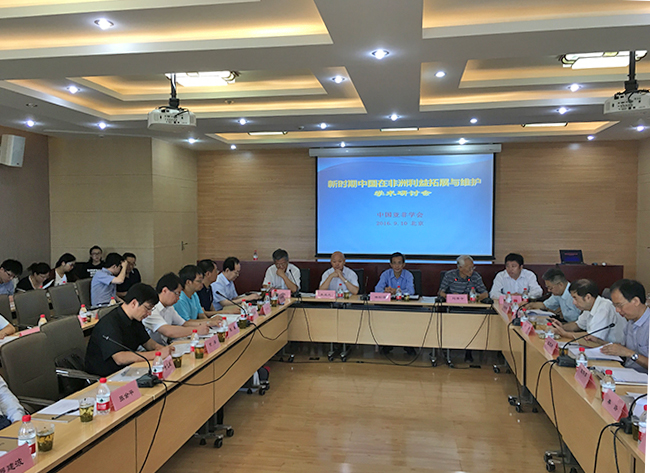China-Africa cooperation based on investment, not aid

The Chinese Society of Asian and African Studies held a symposium to discuss China-Africa cooperation on Sept. 10 in Beijing.
New sources of vitality have been injected into the China-Africa partnership as the two sides embrace rare historical opportunities, said Lin Songtian, director-general of the Department of African Affairs of China’s foreign ministry at a symposium that took place on Sept. 10 in Beijing.
In recent years, China-Africa cooperation has yielded fruitful results in politics, trade, security and people-to-people exchanges. With greater cooperation in more fields, the two sides will place increasingly higher demands on each other, which will present challenges as they endeavor to maintain and build upon the achievements made thus far.
Against this backdrop, the Chinese Society of Asian and African Studies held a symposium to discuss related topics. The event gathered almost 100 participants from the government and academia as well as enterprise and media representatives.
African countries won their independence from the colonial powers after the 1950s. Since then, they have unified and achieved self-reliance, thereby solidifying their political independence while at the same time seeking economic independence and trying to become globally competitive.
As the second decade of the new century draws to a close, the African countries continue their attempts to escape their marginal status within the global system. The world has high hopes for Africa, and many countries see the continent as a prime investment destination.
The People’s Republic of China and the continent have a history of cooperation that stretches back nearly five decades. They both regard each other as reliable partners. The meeting to coordinate follow-up actions to the Johannesburg Summit of the Forum on China-Africa Cooperation (FOCAC) held in Beijing on July 29 led to the signing of more than 240 agreements worth $50.7 billion between the two sides. China and Africa made remarkable progress toward implementing the 10 plans for cooperation laid out by Chinese President Xi Jinping at the summit.
Participants in the meeting all agree that cooperation between the two sides has taken on three new dimensions: First, investment and commercial loans rather than aid are now the major forms of cooperation. Second, enterprises and financial institutions have replaced the government as the major participants. Third, African countries now come to China to seek investment rather than financial aid.
Therefore, investment is the new engine for driving the partnership. Yang Lihua, a research fellow from the Institute of West-Asian and African Studies at the Chinese Academy of Social Sciences, said that investment-driven comprehensive economic cooperation will become the direction for capacity cooperation between China and Africa.
In addition to energy and mineral development, we should also stress the development of manufacturing industry in Africa, she said.
Du Mei is a reporter at the Chinese Social Sciences Today.

 PRINT
PRINT CLOSE
CLOSE